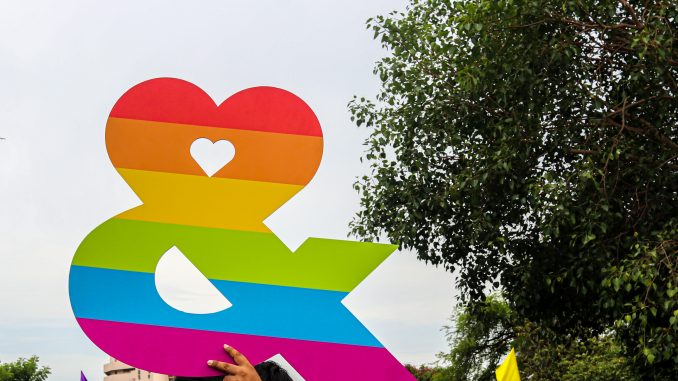“I don’t even know who my family were,” says Reena Kinnar, a 24-year-old transgender person, living near Delhi Gate, “They never came to see me , they don’t even know whether I am alive or dead. After being rejected by my family, I found solace and refuge with other hijras who were also struggling to survive.” This conversation, a part of a survey that I conducted on trans people in Delhi earning their living on the streets, reflects the realities of many like Reena. The survey was conducted across areas like New Delhi railway station, Rajghat, Barakhamba Road, Connaught Place, and Delhi Gate.
Reena was about four when her family just dumped her on the street. For years she survived on scraps. As she grew older, she was saved by the hijra community. She has been living with them ever since, under the guidance of Guru, a mentor.
“Is it my fault if God has created me this way?” asks a teary-eyed Reena. “If you get ridiculed all the time it’s really tough to take. I even attempted suicide once, but failed”. I just felt numb on hearing those words. I didn’t know how to process it.
My survey was intended to find out how members of the transgender community in these parts of the city were coping with the pandemic. But after interviewing several trans people in Delhi at different locations and listening to their ordeal, I was traumatized. Yet, determined to do something.
Read more: How inclusive is Chennai? Individuals from the LGBTQ+ community speak out
Out of sight, out of mind
The total population of transgender persons according to the 2011 census is 4.8 lakh; but only 30,000 are registered with the Election commission, according to a study on human rights of the community in India. However, other estimates suggest that there are 50-60 lakh trans people in India, but most keep it a secret to avoid discrimination.
How can one count a population that prefers not to be counted? And, wishes to stay out of sight.
“Earlier I used to work for LIC but now I’ve no job,” says Gopi Debnath from Assam, a 25-year-old trans woman begging on the streets of Delhi Gate these past few years. “It is not going to be easy for me to find another job. I came to Delhi in order to lead a good life. I have no source of livelihood and I am solely dependent on the mercy of the people.”
Gopi talked about how she faced rejection because of her identity even during her school and college days. Also, most community members I met did not have any identity proof and so have been excluded from humanitarian assistance in these pandemic times.

More than 1.2 billion Aadhaar IDs, the world’s largest biometric identity system, have been issued, according to government data. But an estimated 102 million people do not have Aadhaar, including 30 per cent of India’s homeless population and more than a quarter of its third-gender citizens, said a report published by Dalberg, a consulting firm.
As they do not form a noticeable vote bank, they also don’t figure in the agenda of any political party.
Read more: “My rights need to be stronger than a woman’s”
Gender education
Lack of acceptance from peers and family leave trans people traumatized for life. Parents feel something bizarre has happened to their children. But gender does not exist in those binary terms; gender is more of a spectrum. There are intersex traits which illustrate that sex exists across a continuum of possibilities.
Parents have a preconceived notion about transgender persons which makes them judgmental, and sometimes even abusive, towards their transgender child. Children come to their parents hoping for support but are often misunderstood, which makes the parent-child relationship fragile, leaving the child with no choice but to move out of the house, finding refuge wherever they are accepted.
Even before the pandemic hit, trans people faced a higher rate of anxiety, stress, trauma, depression, economic, social and moral instability compared to the rest of society. They are a highly vulnerable group with high rates of stigmatization, and the pandemic has taken an even deeper toll on the transgender community. It is important to reach out to the people of India, particularly the youth, with their stories and tell them that it is unacceptable to hurt someone’s sentiments based on their gender identity. They are one of us, who deserve to be treated with respect and dignity.
Therefore, educate yourself and sensitize your family and friends to be trans-friendly.